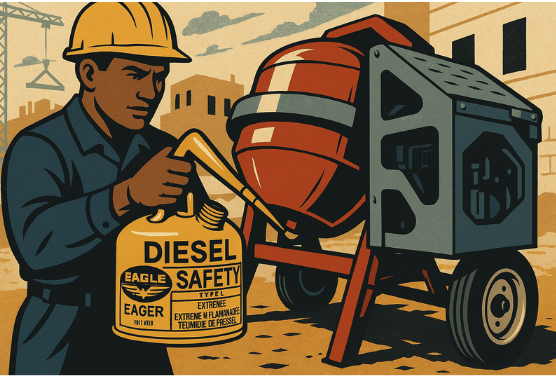DIESEL
 |

Compared to Gasoline Mixers of similar size, Diesel Engines are more powerful.
They also consume a lesser amount of Fuel compared to Gasoline-Powered machines.
Diesel Engines are more solidly built (Compression is much higher).
As for Service Intervals, Diesel Equipment has longer Intervals.
They also have fewer components that can fail unexpectedly. Therefore are preferred for Continuous Duty Operations and Mission-Critical Jobs.
Smoke - Diesel Engines tend to produce more Fumes than Gasoline Models (Especially older Diesel Models). This is especially important because mixers are stationary and unlike moving vehicles, Fumes can build up fast on job sites.
Diesel Fuel is Safer to Store than Gasoline, and has a longer Shelf Life—making it more suitable for Storage and Overwintering. However, Diesel can Gel in extremely cold temperatures, potentially requiring Fuel Additives or Pre-Heating equipment in frigid climates.
Gasoline and Diesel Mixers both offer flexibility for job sites where an electrical hookup is not available.
Shining a light on over 80 Construction Categories, with unlimited potential for Sub Categories - Watch our Community grow!

